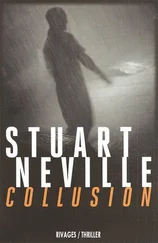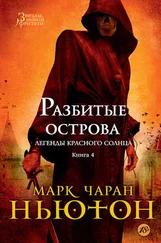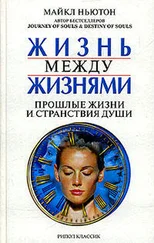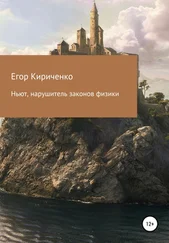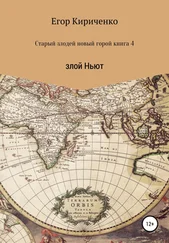Newt Gingrich and Pete Earley
COLLUSION
We dedicate this book to the poison victims and others who have been murdered by Russian president Vladimir Vladimirovich Putin’s regime.
Russia never lost the Cold War because it never ended.
—Vladimir Vladimirovich Putin
Marcus Austin — Moscow chief of station for the CIA
Elsa Eriksson — NGO worker, Nigeria
Randle Fitzgerald — U.S. president
Brett Garrett — Former U.S. Navy SEAL
General Andre Borsovich Gromyko — Russian president’s top advisor
Harold Harris — CIA director
Makayla Jones — Antifa leader
Vyachesian Leninovich Kalugin — Russian president
Thomas Jefferson Kim — Cybersecurity expert
Valerie Mayberry — FBI Counterintelligence agent
Yakov Prokofyevich Pavel — Deputy Russian foreign minister
Aysan Rivera — Antifa member
Cormac Stone — California U.S. senator
Part I
The Bear Shows Its Claws
Those who “abjure” violence can only do so because others are committing violence on their behalf.
—George Orwell
Two Years Earlier
The jihadist seemed to rise from the underworld. Crawling across the Cameroon terrain when he’d reached them before dawn. Navy SEAL Brett Garrett could see the color of his black eyes. Boko Haram. The missing twentieth fighter whom everyone except for Garrett had believed dead. He’d followed them from the bloodbath in his camp. Patiently waiting, watching them board the helicopter, waiting until liftoff, knowing it was his best chance to maximize deaths.
He shouldered his weapon at the same moment Garrett raised his rifle from his seat inside the open cargo door. Garrett fired and in that same instant saw the rocket-propelled grenade flying at the cockpit.
A bright yellow burst. Instant loss of hearing. Instant concussion. Instant confusion. The machine fell. Its shell smacking into the earth, throwing Garrett free but on fire.
Still conscious enough to roll over, over, and over again. What of the others? He didn’t know. He’d disobeyed a direct order. He was responsible for what was now happening. But he’d done it for the right reasons.
Hadn’t he? Surely, they would understand. He’d wanted to save the children.
Current Day
A shrill alarm pierced the darkness. A hulking figure stepped outside the building into the minus-twelve-degree temperature cradling an unconscious woman in his arms. Roof floodlights illuminated the snow-covered grounds. Svetogorsk, Russia. A facility hidden outside the town in a dense forest.
The man trudged through a foot of snow toward a 1980s-era, rusty Lada parked alongside a half-dozen other tired Soviet-era vehicles. It was a twenty-yard trek to the car. The man almost made it halfway before a thin line of blood trickled down from under the protective mask covering his nose and mouth. His breathing became gasps. Two steps more before he fell to his knees still holding the listless woman. His wife.
He struggled to remain upright; he gazed forward at the parked Lada as if he were picturing himself reaching it. So close. His heart stopped. He fell, covering his wife’s corpse.
The alarm ended but the spotlights continued to shine, causing the snow to glisten. Twinkles of bright and faint ice diamonds.
Two figures. A man and a woman in hazmat suits. Like space travelers, they emerged from the building, following the man’s footsteps to where he and his wife were motionless. Disfigured snow angels.
With thick-gloved hands, the man leaned down. Inspecting the bodies.
“We must incinerate the corpses before we contact Moscow,” he said through a microphone to the woman with him.
“General Gromyko will be angry,” she replied.
“We cannot to be blamed!” the man snapped. “Accidents happen.”
“Accidents? This was no accident.”
“Don’t be a fool. Immediate cremation. For everyone’s protection.”
“They have a child,” she said. “Peter. A mute.”
“The boy is of no consequence to us. General Gromyko will deal with him.”
The woman stared down at the dead couple. “Her father holds a high position in the Foreign Ministry,” the woman said.
“Which is why we must burn these bodies quickly and report their deaths as an accident.”
The man stood, turned his back to her and the dead couple, and began making his way through the snow to the building. The woman hesitated, glanced over her shoulder to be sure he was not watching, and made the sign of the cross.
Her lips moved. A prayer for the dead.
Two years earlier
Elsa Eriksson couldn’t sweat.
Dehydration. The body loses 10 percent of the water it takes in every day through sweat. That’s what the nursing instructors in Sweden had taught her.
Lying in the fetal position on the hard ground, she guessed it was at least a hundred degrees. She’d asked her kidnappers for water, but they wanted her weak, compliant—not dead. She was worthless to them dead. One bottle of water per day—sixteen fluid ounces—handed to her bound wrists for her to lift underneath the loosened black hood slipped over her head.
With her bare feet—they’d taken her shoes—she’d felt the bare ground beneath. Extending them out, she touched the mud walls of what she assumed was an African mud hut. She decided to stand and was met with a sucker punch to her abdomen. She fell back to the floor. Someone was guarding her.
She had no one to blame but herself.
The Nigerian army commander had told her not to leave the compound. Thirteen-foot-tall pieces of corrugated metal—each four feet wide—protected “New Banki City” in this northern province—although it was hardly a city by any definition. Cities had municipal services, order, normality. New Banki was a refugee camp.
Eriksson had been warned before leaving Sweden. Still, she was shocked when she’d first arrived three months ago. Trash-strewn dirt paths, bombed-out concrete buildings, flimsy tents. Inside the camp were children, women, and old men. No males of fighting age. They’d been herded sheeplike into trucks for transport to Nigerian army detention centers. Outside the enclosed compound, Boko Haram was in control. Islamic extremists. Kidnappers. Murderers. Rapists. Suicide bombers in training eager to claim their celestial virgins. She’d entered a human toilet bowl edged by IEDs—a cesspool of disease and death unlike anything she’d witnessed.
The Nigerian commander had confiscated all the medical supplies that she’d brought from her employer, a Swedish humanitarian NGO, and only after her repeated threats to report him to the Swiss and Americans had he returned less than a third of them, selling the rest on a thriving black market. Having a Swedish father and American mother gave her twice the diplomatic clout.
She had stuck out. A too-thin, unmarried, thirty-year-old Christian woman in an ocean of uprooted Muslims. The army soldiers took bets about how long she would stay.
The explosion had come at dusk. An IED tripped by one of two women who’d left the compound at dusk to gather firewood. One had returned staggering. Cuts, bruises, and totally confused. The Nigerian soldiers had smirked. They showed no interest in searching for the other woman.
Читать дальше



